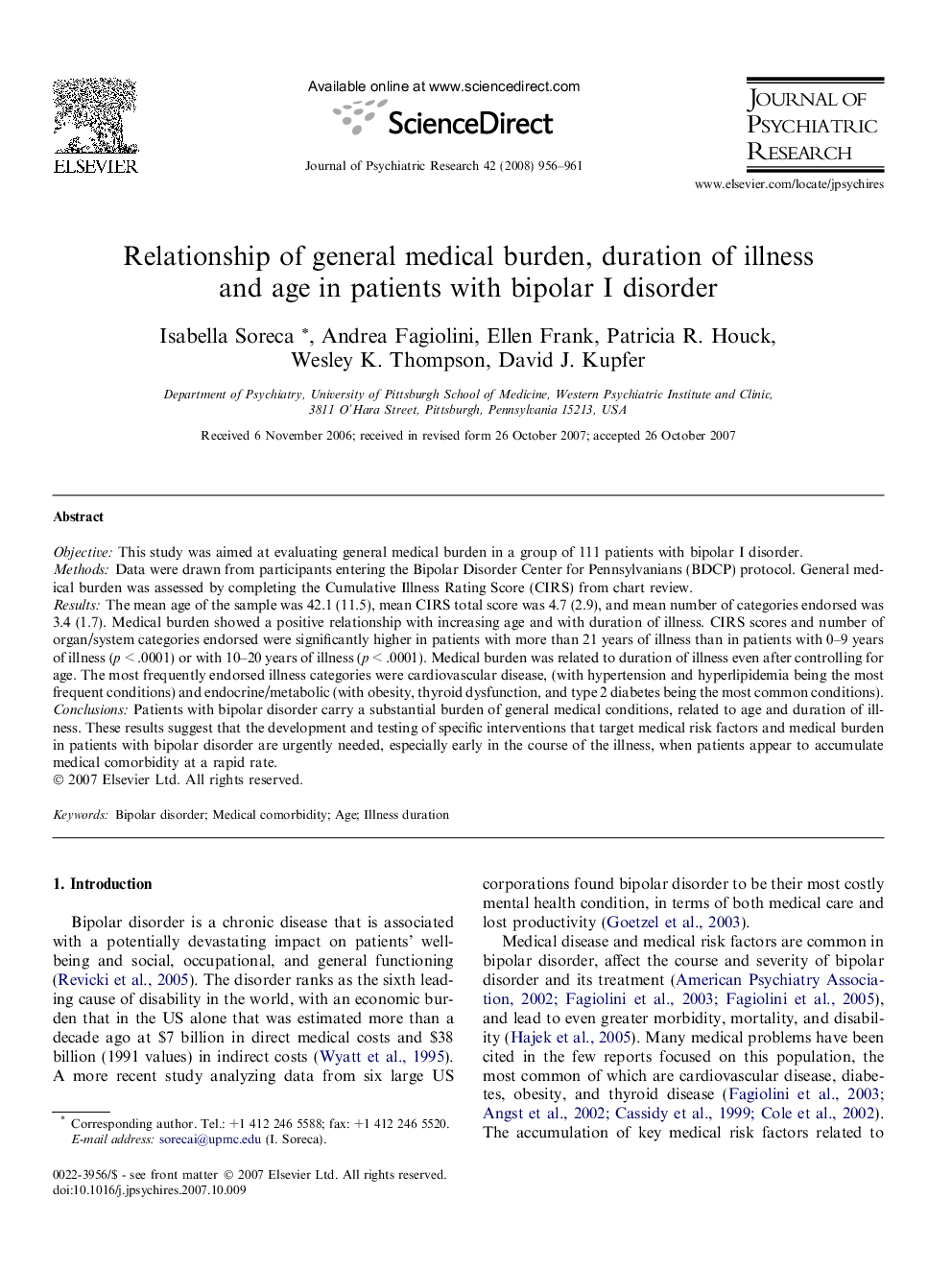| Article ID | Journal | Published Year | Pages | File Type |
|---|---|---|---|---|
| 327851 | Journal of Psychiatric Research | 2008 | 6 Pages |
ObjectiveThis study was aimed at evaluating general medical burden in a group of 111 patients with bipolar I disorder.MethodsData were drawn from participants entering the Bipolar Disorder Center for Pennsylvanians (BDCP) protocol. General medical burden was assessed by completing the Cumulative Illness Rating Score (CIRS) from chart review.ResultsThe mean age of the sample was 42.1 (11.5), mean CIRS total score was 4.7 (2.9), and mean number of categories endorsed was 3.4 (1.7). Medical burden showed a positive relationship with increasing age and with duration of illness. CIRS scores and number of organ/system categories endorsed were significantly higher in patients with more than 21 years of illness than in patients with 0–9 years of illness (p < .0001) or with 10–20 years of illness (p < .0001). Medical burden was related to duration of illness even after controlling for age. The most frequently endorsed illness categories were cardiovascular disease, (with hypertension and hyperlipidemia being the most frequent conditions) and endocrine/metabolic (with obesity, thyroid dysfunction, and type 2 diabetes being the most common conditions).ConclusionsPatients with bipolar disorder carry a substantial burden of general medical conditions, related to age and duration of illness. These results suggest that the development and testing of specific interventions that target medical risk factors and medical burden in patients with bipolar disorder are urgently needed, especially early in the course of the illness, when patients appear to accumulate medical comorbidity at a rapid rate.
